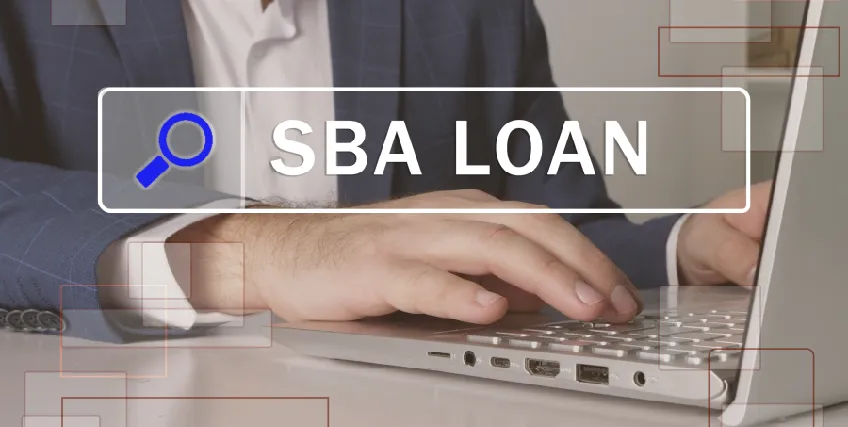The Definitive Guide to Refinancing a Business Loan
October 03, 2025 | Last Updated on: October 03, 2025

Refinancing a business loan can be a great way to restructure your business’s current debt and its payment terms. However, it requires some research and shopping to find the best terms.
Here’s what you need to know about refinancing a business loan, the advantages and disadvantages, and how to navigate the process.
Key Points:
- Small business refinancing can be an excellent way to restructure company debt to increase monthly cash flow.
- Refinancing a business loan can bring a potential hit on your credit score and fees from the lender.
- A great time to consider refinancing is when interest rates are coming down to potentially save on monthly interest payments.
What is Small Business Loan Refinancing?
Small business loan refinancing involves replacing an existing business loan with a new one, usually with more favorable terms. This process allows business owners to restructure their debt, potentially lower loan payments, reduce interest rates, or extending the repayment period. By refinancing, businesses can free up cash flow, making it easier to manage expenses or reinvest in growth opportunities. It can also be used to consolidate multiple loans into a single, more manageable payment.
Refinancing debt for businesses can be a great idea when they have improved their credit profile or market conditions have shifted to offer lower interest rates. However, business operators must evaluate the total costs involved, such as prepayment penalties, closing fees, and the overall impact on the loan term.
As an example, some small business owners will refinance their business loan into a line of credit that may have better lending terms and more flexible working capital. Or, they may have racked up debt on a high-interest business credit card and need to adjust that debt into a term loan with a lower interest rate and better terms.
What Is Needed to Refinance a Business Loan
There are several items you need to refinance a business loan, regardless of the loan amount. You will likely need:
- Business balance sheets showing monthly and annual revenue
- Bank statements and financial statements from recent months
- Contact information for your current lender
- Documentation of the original loan and other existing debt
- Tax returns for the business
Advantages of Business Loan Refinancing
Lowering ongoing financing costs
When someone refinances their current loan to a new loan, they may be able to benefit from lower monthly payments.
Improved cash flow
Refinancing can boost a company’s cash flow, saving money with reduced monthly costs or a more advantageous repayment schedule.
Increased funding amounts
Refinancing a loan gives the potential for qualifying for a larger loan amount. How that cash is used depends on what a business’ biggest financial needs are and what the loan terms and conditions allow.
Disadvantages of Refinancing a Small Business Loan
Your credit score could be impacted
Refinancing a loan might result in a hit to an applicant’s personal credit score. Taking out a second loan can also increase one’s total amount of debt, which isn’t the best thing for one’s business credit profile.
Prepayment penalties
Prepayment penalty fees might result when someone borrowing money pays their lender all or part of the loan principal prior to its due date. A company pays off its previous loan debt with the funds from its new loan when refinancing, so if there are prepayment penalties on the first loan, you could be smacked with prepayment fees. In this case, the small business owner seeking a second loan must measure the ultimate cost of these prepayment fees against how much he’ll save by refinancing.
Collateral requirements
Small business owners are required to use collateral when applying for a loan. If your business credit score has decreased since yourelast loan application, collateral might be required for refinancing a loan.
Do You Qualify for Refinancing A Business Loan?
There are several loan options available for refinancing business debt. Here are a few points that lenders will focus on during the application process:
Income: If a company is generating income, there’s a much better chance of getting approval to refinance.
Credit score: If your credit score has improved since the last time you applied for business financing, the chances for refinancing approval may be higher.
Existing loan: The more debt the business carries, the harder it could be to qualify for refinancing.
Financial history: Banks are going to look for whether a loan applicant is making monthly payments on time. The more sound one’s financial history has been, the more favorably a lender will view a loan applicant.
Bottom Line
Refinancing a business loan can be a way to lower the burden and costs of your existing business debt. But like any loan process, it takes time and due diligence to find the right loan and terms that fit your business needs.
Additionally, be sure to consider all factors of the new loan, such as interest rate, closing costs, origination fees, prepayment penalties, and more. All of these can affect whether it’s worth it for you to refinance or not.
FAQs about Refinancing Business Loans
How does refinancing work?
Refinancing is taking a loan from one lender to another, with the purpose of finding a better interest rate or borrowing terms. This requires approval on the new loan first before paying off the original lender.
Is it possible to refinance a business loan?
Yes, it is possible to refinance a business loan. However, it doesn’t make sense in every case to do so.
Can an SBA loan be refinanced?
Yes, you can refinance an SBA loan. However, each type of SBA loan has specific rules for refinancing.
What credit score is needed for a small business loan?
There are several types of business loans available, and the necessary credit scores for approval will vary. Different lenders such as credit unions, online lenders, and traditional banks will all likely have their own eligibility criteria as well.
Can you get an SBA loan to pay off debt?
Yes, you can use an SBA loan for debt consolidation purposes. However, it must be business debt and not personal debt such as a personal loan.




